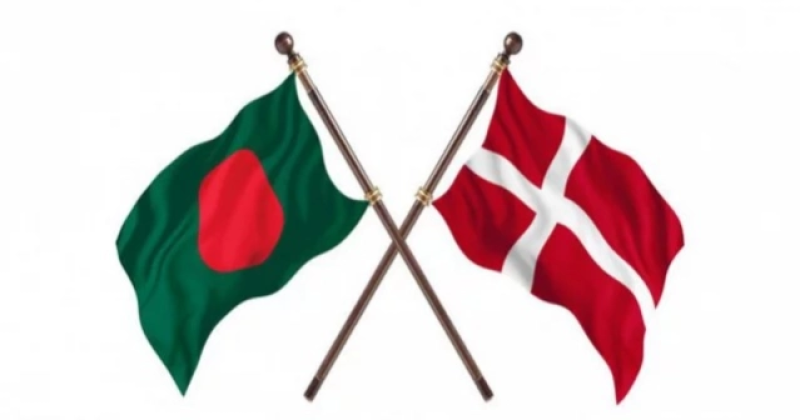- Dhaka’s Per Capita Income Rises to USD 5,163 |
- DSE turnover dips 18% despite weekly gains in key indices |
- 65 Nations Sign UN Treaty to Combat Cybercrime Globally |
- Dhaka’s air quality ‘unhealthy’ 5th worst in world Saturday |
- Dhaka’s air recorded unhealthy on Friday morning |
Denmark Pledges Support for Bangladesh’s Green Transition

Denmark Pledges Support for Bangladesh’s Green Transition
Denmark has reaffirmed its commitment to supporting Bangladesh’s green transition, emphasising the importance of strong institutions, clear policies, and multi-stakeholder collaboration.
Ambassador of Denmark to Bangladesh, Christian Brix Møller, made the remarks on Thursday during a dialogue titled “Climate Talk: Exploring a Robust Carbon Market in Bangladesh” at Bay Edge Gallery in Dhaka.
“To build a credible and effective carbon market, collaboration among government, private sector, civil society, and international partners is crucial. This is a key step in turning discussions into actionable solutions,” the Ambassador said.
The event brought together over 80 participants, including representatives from the Bangladeshi government, private sector, academia, and development organisations, to explore opportunities and challenges in creating a credible and inclusive carbon market.
Highlighting Bangladesh’s vulnerability to climate risks despite contributing less than 0.4% of global greenhouse gas emissions, Ambassador Møller said, “This may be seen as climate injustice, but it is also an opportunity for leadership and investment. With the right partnerships, Bangladesh can transform climate challenges into sustainable and inclusive growth.”
The dialogue featured a keynote presentation by Shaymal Barman, Carbon Market Specialist, who noted, “Carbon trading is not only a mechanism to reduce emissions but also a tool to mobilise investment for sustainable development. For countries like Bangladesh, a credible carbon market can drive economic growth while meeting climate goals such as the Nationally Determined Contributions.”
A panel discussion followed, focusing on policy frameworks, institutional readiness, private sector engagement, and strategies to ensure transparency and credibility in the carbon market. Participants explored how carbon trading can advance low-carbon development, corporate sustainability, and Bangladesh’s commitments under the Paris Agreement.
Mirza Shawkat Ali, Director of Climate Change and International Convention at the Department of Environment, highlighted Bangladesh’s role in global climate action. “Bangladesh has the opportunity to lead among developing countries in climate solutions. Developing a Carbon Market Framework can attract investment, promote innovation, and ensure climate initiatives support low-carbon development and local communities,” he said.
The dialogue concluded with key takeaways to guide future policy discussions and capacity-building initiatives, underlining that strong partnerships, strategic planning, and knowledge sharing are essential for turning climate challenges into sustainable economic opportunities.

